Splice CEO’s message for AI sceptics? “Trust the artists”
Kakul Srivastava shares her belief in “human creativity” and how AI-powered tools such as Splice’s Create can help democratise the music industry
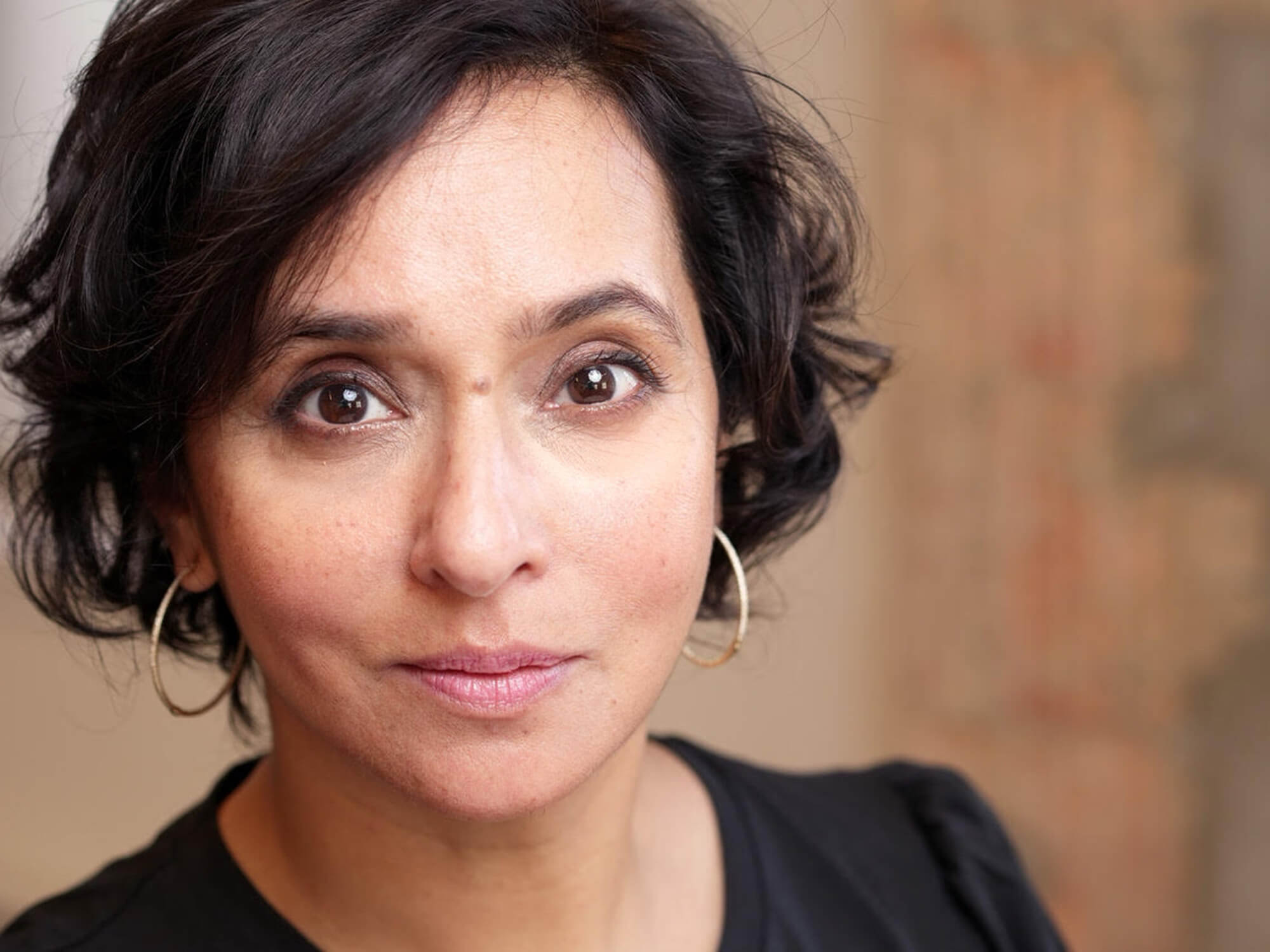
Splice CEO Kakul Srivastava
Artificial intelligence is here, and it’s rapidly evolving in both its capabilities and mainstream infamy. A sudden boom in the adoption of the technology has sparked backing and backlash from musicians, producers, tech bros and everyone in between for months.
Generative AI equips users with the power to emulate pop stars such as Drake or The Weeknd, for example (or to emulate 2Pac, if you’re Drake). Arguably, this technology poses the most frightening threat. The three major labels (Sony, Warner, Universal) have expectedly caught onto this quickly and, this week, filed a behemoth lawsuit against generative AI platforms Suno and Udio, seeking damages to the tune of $150,000 for every track in their catalogue that’s been infringed upon.
But it’s not all bad. Some AI tech helps streamline music production, making it easier for more creators to stay inspired and make music quickly. Such services includes Voice-Swap, which aims to fairly pay session musicians for their vocal likeness, and Synplant, a synth plugin that uses AI to turn any imported audio into a novel synth.
Kakul Srivastava, CEO of music creation platform Splice — now boasting the AI-powered Create music arrangement generator tool — is an early adopter and leading voice in AI. Is she concerned? Yes and no.
“I’m not an AI fan girl… It’s a technology that can be used in good ways and really stupid ways”
“I’m not actually very pro AI,” Splice CEO Kakul Srivastava says from her San Fransisco home. “I’m not an AI fan girl.” She bemoans the annoying “noise” around AI today. “It’s a technology that can be used in good ways and really stupid ways.”
One of the “good ways,” from Kakul’s viewpoint of course, is Splice Create. The new platform harnesses AI to help users add to their musical ideas quicker so they don’t lose momentum.
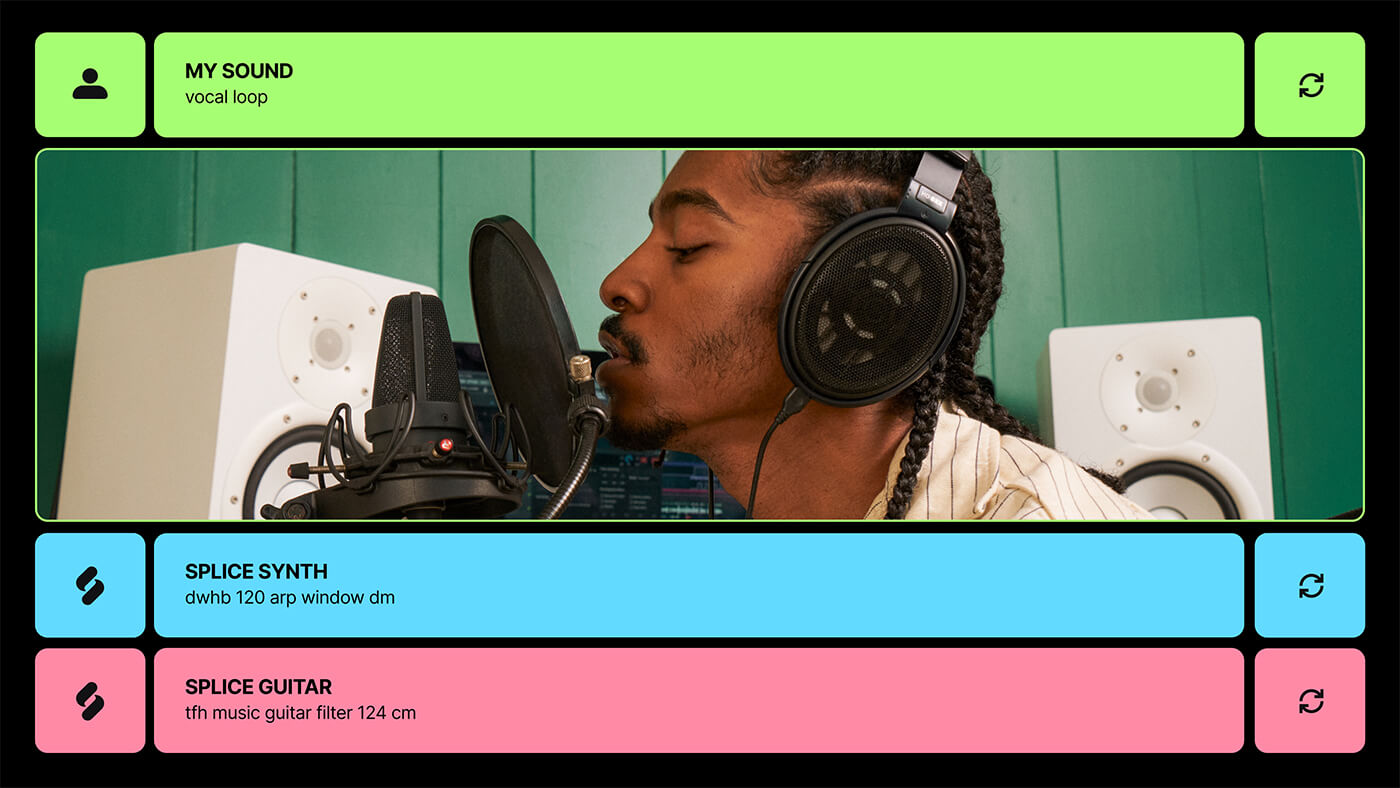
A “crap” use case is generative AI, says Kakul. It’s “just not good enough,” she grumbles. “But I do think that the power of technology and software can make it easier and take the drudgery out of music creation.
“It took Michelangelo painful years lying on his back, suspended high up, to paint the artwork he did. And it takes photographers today just one click to capture a photograph. To say that one is art and the other is not — because they require different levels of effort to make — is challenging.
“The hard part of art is not the physical work; it’s the work of identifying the truth — truths about human nature — that you can translate into something. We need to do enable people to find that truth and convey it into music. I’m focused on getting that musical idea through Create.”
What is Splice Create?
Create is an AI-powered music arrangement generation tool that prioritises creative flow over arduous, momentum-killing manual sample searches. As of today (26 June), Create’s User Audio feature now allows you to import your song ideas; it will analyse your audio and suggest sounds from Splice’s sample library to complement your sonic sketch.
Splice says it sees over a million daily sample downloads, and champions sounds recorded by artists on over 300 instruments, spanning over 130 genres.
Drawing from this vast and diverse catalogue, Create can suggest sounds and styles you may never have previously thought of, says the brand, resulting in a more unique and explorative project.
“An incredible variety of diverse instruments, different genres and ethnic musical types live on Splice,” Kakul tells us. “I’m constantly amazed by people remixing, say, an ancient Korean instrument that three people know how to play and mixing it with hip-hop to get something completely different out of it.”
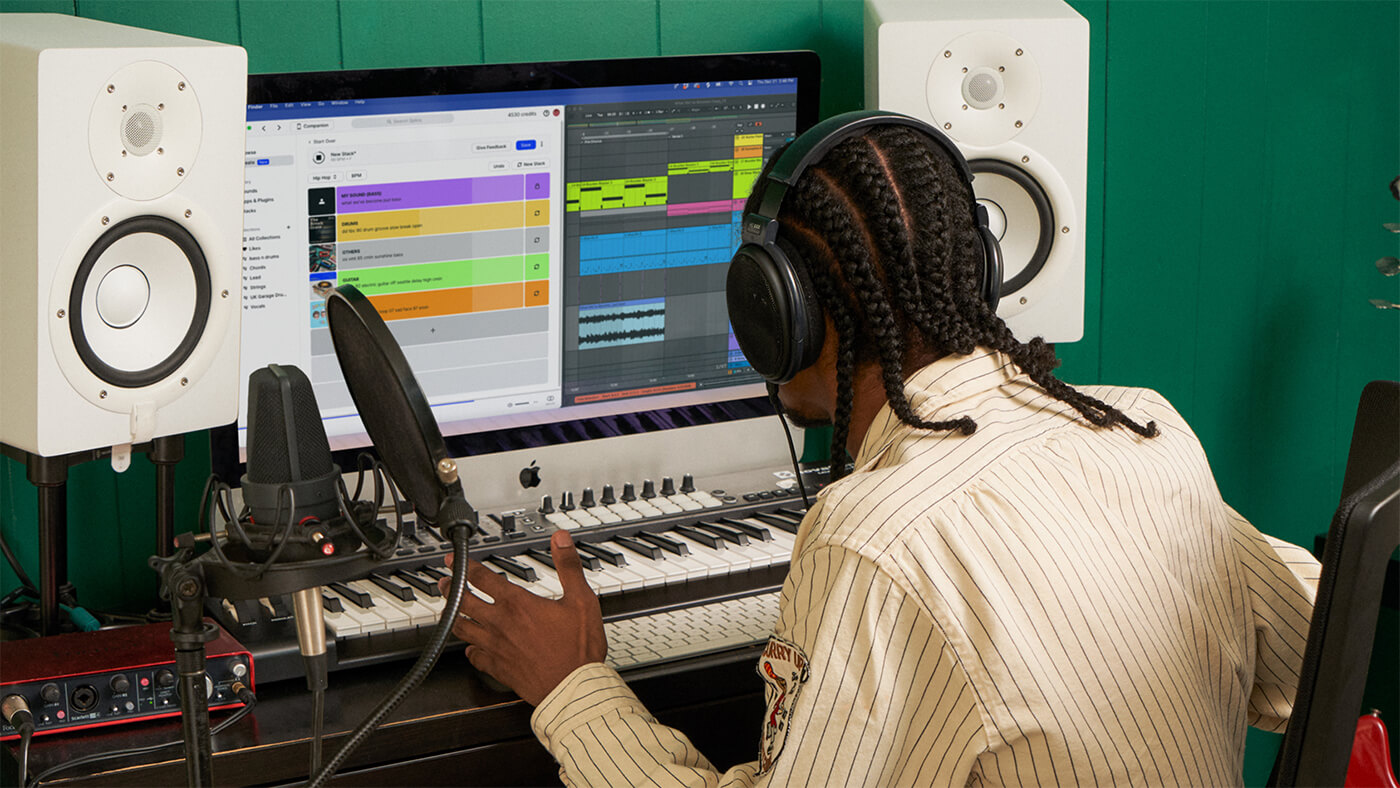
Speaking about the User Audio integration, Kakul says that Splice is “constantly looking for ways to increase creativity and enhance workflow. Our decisions start and end with creators and it was important that we introduce a solution for musicians looking to expand their original ideas. It gives the creator more options while their authenticity remains at the center.”
“I would like to live in a world where AI drives more human creativity and the reason I think that’s important is because of democratisation.”
Education and democratisation with Splice and AI
When Kakul says “democratisation”, the Splice CEO isn’t just talking about shining a light on a diverse range of recorded sounds and a global pool of players. It’s also about giving more budding producers the chance to create music, whatever their ability, technical skills or attention spans.
Tapping into education, Splice now offers an affordable option for students. It’s also teamed up with schools, including Berklee College of Music, to implement Create into the classroom. This means any student – not just those with the most technical prowess – can find inspiration quickly. Plus, the teacher has less chance of losing the class’s interest as they fumble around, thumbing in commands or searching for samples.
The response from teachers has been “profound”, says Kakul proudly. “Create AI allows people to get their students to a starting point of creation quickly. You can use a query to say, ‘I want to create something in this genre and I want to use the same samples’, for example. To get to your final track, you need to do a lot more work and refinement, but when you’re in a learning space and you want to explore, Create is powerful.”
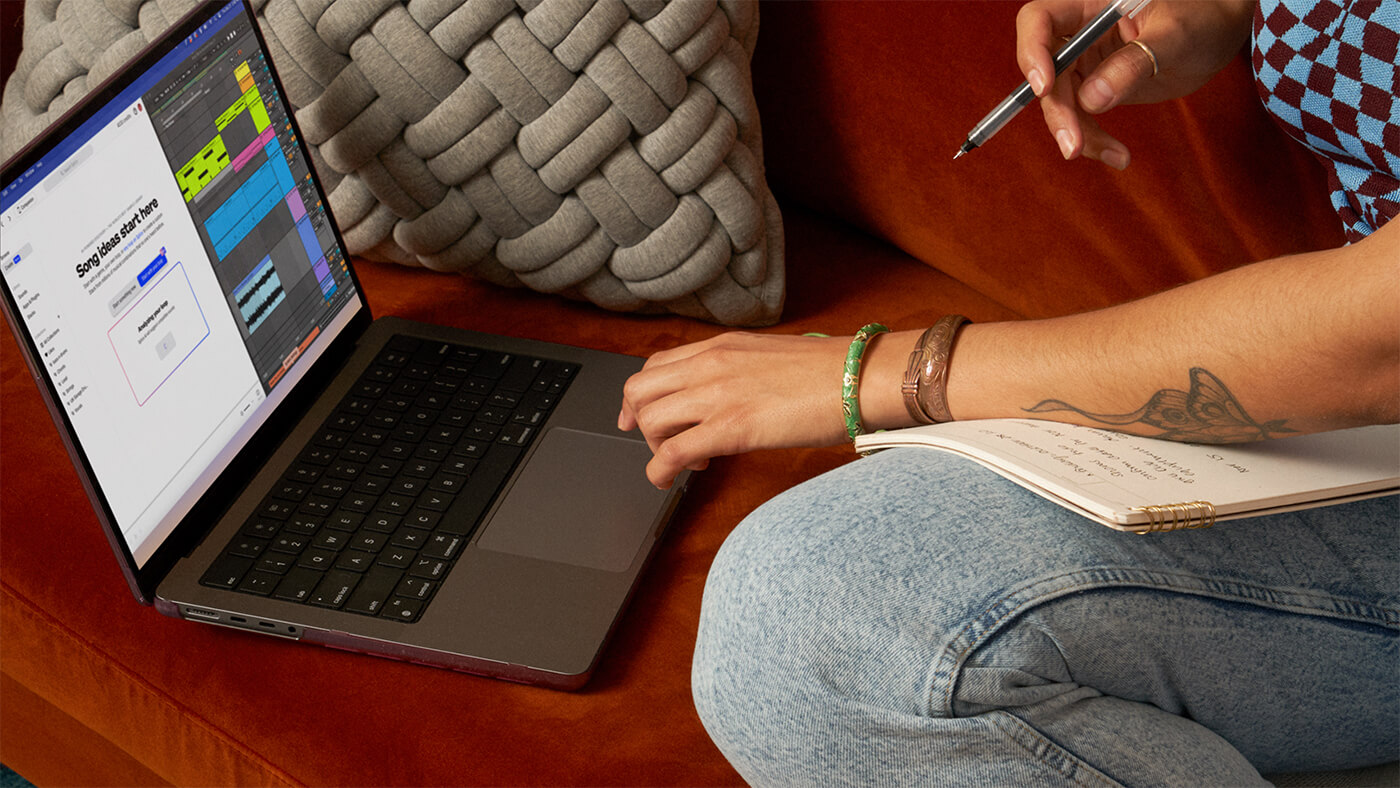
AI tools such as this give creative minds the chance to make music who sadly, for a number of reasons, might not usually get far enough into the music creation process to be excited about it.
Giving young people these opportunities is vital for Kakul. She recalls a story about a friend’s seven-year-old son who played the piano and when asked what he was playing, simply replied, “I was imagining a horse galloping”.
“I was blown away,” she says. “Because if we let ourselves be creative in that way, if we don’t make excuses for ourselves like, “Oh, I wasn’t trained in music,” and if we just allow ourselves to create, something really powerful happens, right?
“That’s what democratisation is about: making you feel like it’s okay to play. It’s okay to make sounds like “a horse galloping” or say, “I wasn’t trained,” because it shouldn’t matter. It’s about giving more people the ability to find that musical story and to get to completion. We are on the side of the quitters, helping them bring these ideas to life.”
The easy accessibility of Create hasn’t been met with total glee, however. Kakul has seen feedback that the feature makes some people “feel a bit like they’re cheating”. She posits that “offering them more control will [mean] creators [can] have more manual settings within their workflow.”
“Our work tells us producers aren’t looking for ways to reinvent how they work, just ways to make it better, more efficient.”
Navigating the future of music with AI
With all manner of negativity swirling around the technology, however, and with only AI’s most controversial, surface-level examples making the most noise, there’s bound to be retaliation from artists.
Kakul says there’s “a lot to be figured out” with generative AI which she “stays away from”, her message for sceptics – and it’s a lot of people – is to believe in the power of AI when put in the right hands.
“Trust the artists,” she says with severity. “Every time we’ve put technology in the hands of artists, they’ve surprised us with what they can do.’” Kakul cites Daft Punk and Stevie Wonder who’ve taken “seemingly disruptive technologies and transformed them into something truly exceptional”.
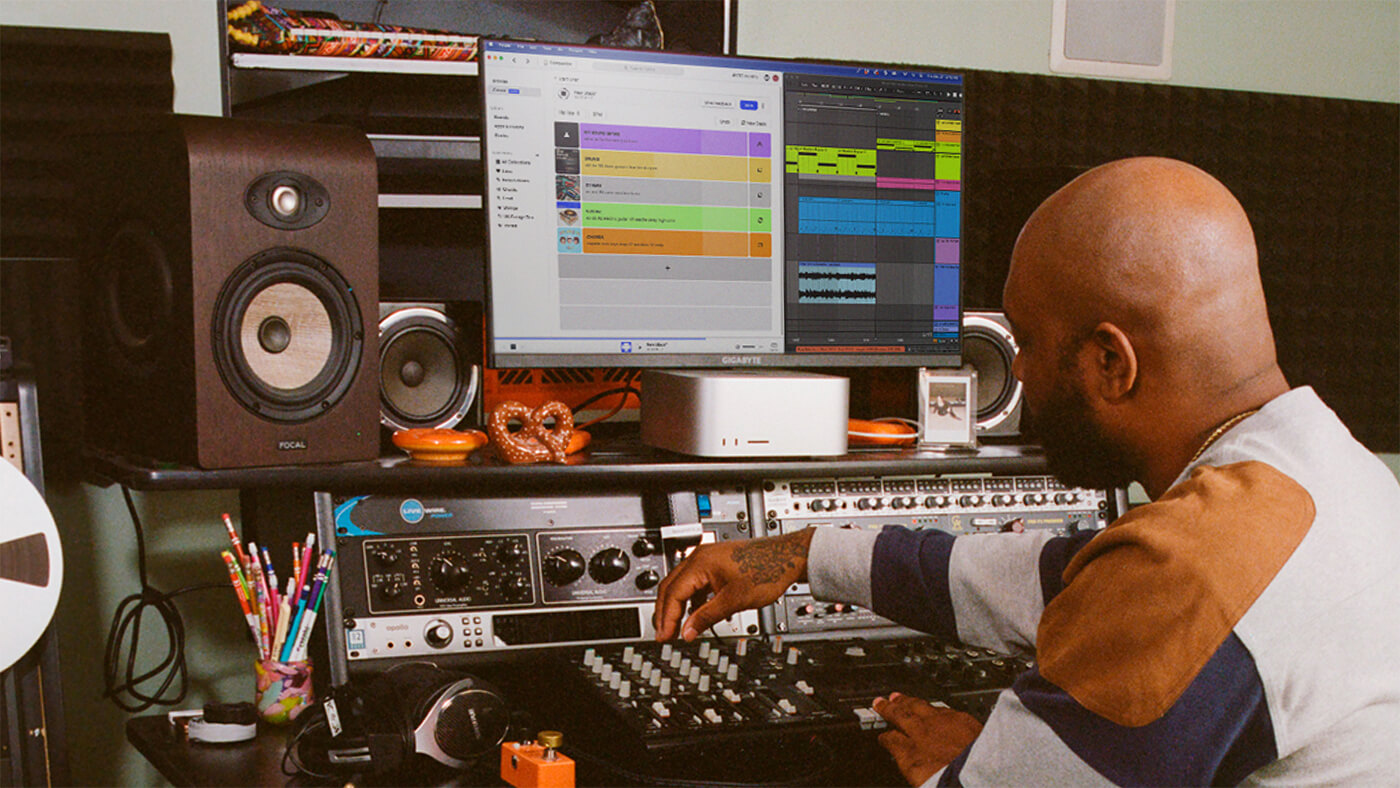
“A lot of people are concerned with AI, and I count myself as part of that,” admits Kakul. “There are parts of this that are dangerous, especially when it blurs the line of what’s real and what’s not – ‘is this a Drake song? Is this not a Drake song?’. Those areas become important. As an industry, we have to get smart at that.”
Though there are global concerns about AI, we wonder about Splice’s more direct concerns. Suno and Udio are the first generative AI services that can vomit up a song in seconds for free with just a few text prompts — they may not be the last. How can Splice compete with such a unique source of free samples?
“We’ve been competing with free samples for years, so that’s not new to us,” Kakul says. “I think Splice is a pretty inexpensive option if you’re looking for royalty-free samples and a license to use them wherever you want! But primarily we need to keep delivering at a high level for our customers and continue improving the experience. Most importantly, the quality of Splice’s sounds is a result of the human’s who make them. Our users know that when they use Splice, they’re collaborating with artists, real-life sound designers and sample producers.”
Still, in Kakul’s vision, AI’s role in the future of music production is unavoidable and inevitable. And, if AI-powered tools such as Create can make it easier for young minds to express their inner musicality without the anxiety of ‘not being good enough’ or ‘not being trained in music’, the importance of this technology can not be overlooked, she says.
“There’s a lot happening at the intersection of AI and music that’s impressive, but much of it is trained on copyrighted content, it will undoubtedly face a hornet’s nest of legal problems,” Kakul concludes. “We have Mic and Prompt features coming up next [on Splice] but we’re taking our time. We’re building our AI in the same way we do everything else at Splice: with creators at the center.
Find out more about Create and read more about AI in music via MusicTech.